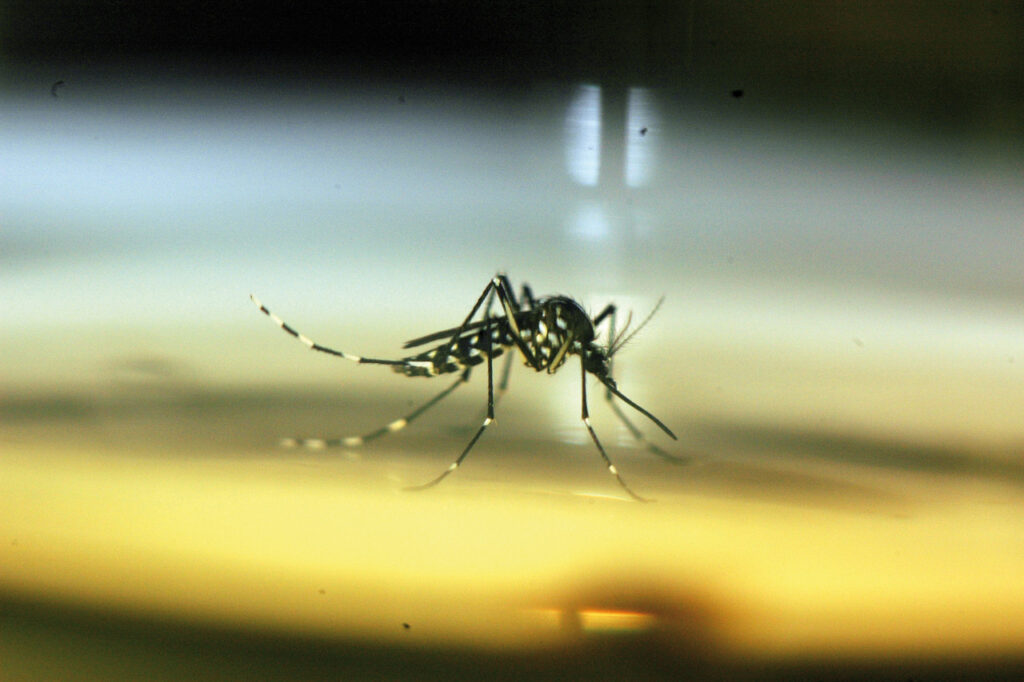[LUM#2] Should we be afraid of the tiger mosquito?
Chikungunya and dengue epidemics in France, really? While global warming does pose health risks, such a threat is not currently relevant in our part of the world.

It may have been your most faithful companion this summer, with its familiar buzzing and appetite for hugs. Its name alone sends shivers down your spine: tiger mosquito, Aedes albopictus to those in the know. Arriving in the south of France around ten years ago, it has now spread its territory to the capital. Is global warming to blame? "Certainly notsolely," replies Jean-François Guégan from the Infectious Diseases and Vectors: Ecology, Genetics, Evolution, and Control laboratory .
"The arrival of the tiger mosquito in France has nothing to do with the climate,"says the researcher. The cause is "the increase in maritime and air transport worldwide, which has enabled it to reach Europe." In particular, the trade in used tires, a prime vehicle forAedes albopictus larvae. "Without the intervention of transport, the tiger mosquito would not have been able to make the leap from Lyon to Paris in a year," emphasizes the specialist.However, he does not completely exonerate climate change: "It is undeniable that the insect can settle in regions made more favorable by rising temperatures," says Jean-François Guégan.
No worst-case scenario in sight
Problem: adult tiger mosquitoes can carry certain viruses, including those responsible for dengue fever and chikungunya. Should we be alarmed by the few recent cases of these diseases in the south of France? "The presence of tiger mosquitoes does not necessarily mean that there will be an outbreak of dengue fever or chikungunya. For that to happen, the cycle of these viruses would have to become established here," reassures Jean-François Guégan. This requires conditions favorable to the development of the mosquito, the virus, and its transmission to humans.
While global warming is a contributing factor, it is not the only determining factor. "Prevention policies, the economic situation of the countries concerned, changes in natural habitats, and the vulnerability and exposure of individuals and populations are all factors that come into play," explains Jean-François Guégan. The tiger mosquito will probably continue to add a little spice to your summer evenings, but cases of dengue fever and chikungunya should remain isolated or be quickly contained. Phew, that was a close call.
Read also:
Shellfish and crustaceans
Much less noticeable than cases of dengue fever and chikungunya, an increase in cases of gastroenteritis and infections has been observed in recent summers in Vendée, Charente-Maritime, and Gironde. The culprit: Vibrio vulnificus. "This bacterium proliferates due to rising coastal water temperatures, "explains Jean-François Guégan. It concentrates in shellfish and can thus be transmitted to humans. "This is a direct consequence of global warming on human health," the researcher points out.
Find UM podcasts now available on your favorite platform (Spotify, Deezer, Apple Podcasts, Amazon Music, etc.).